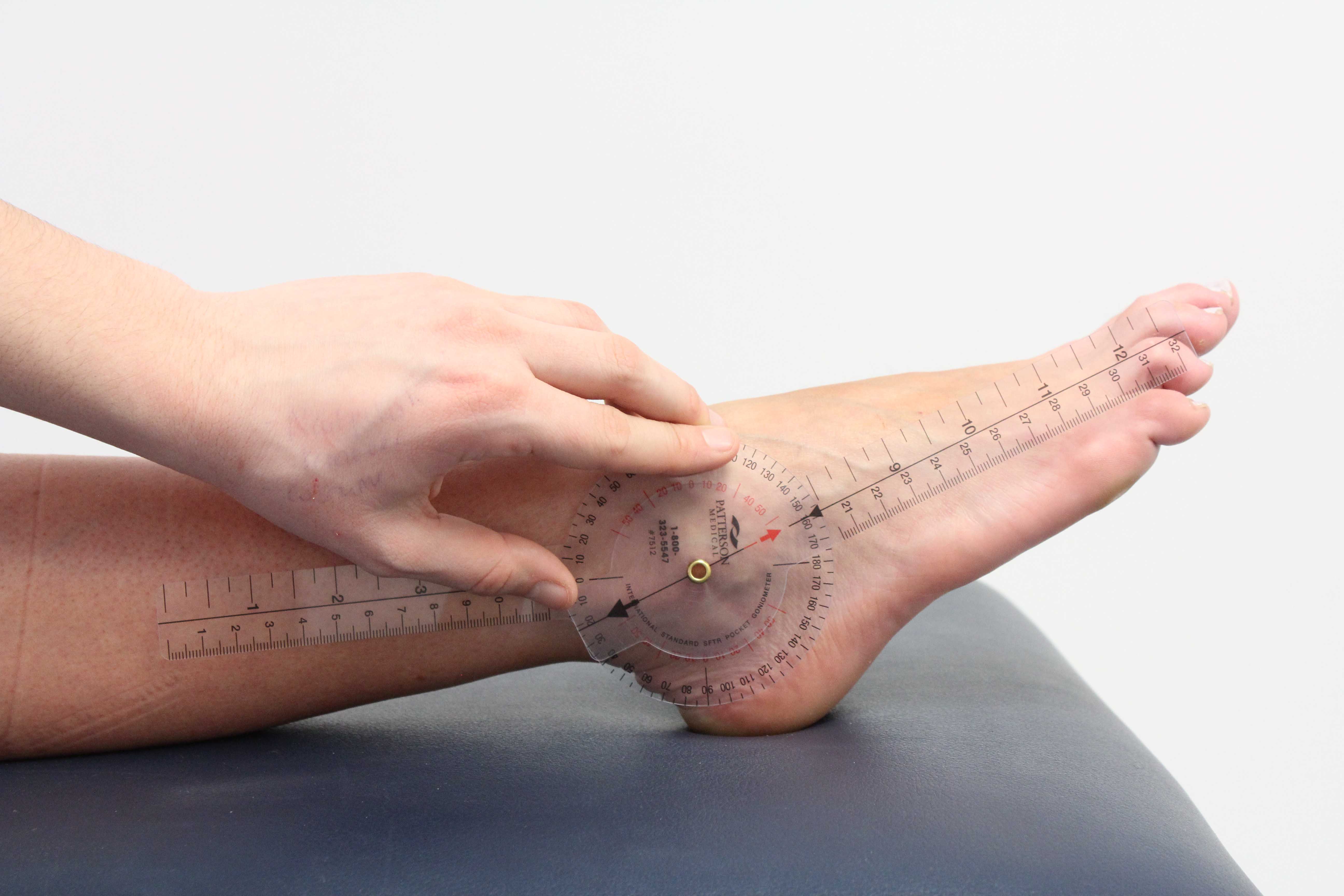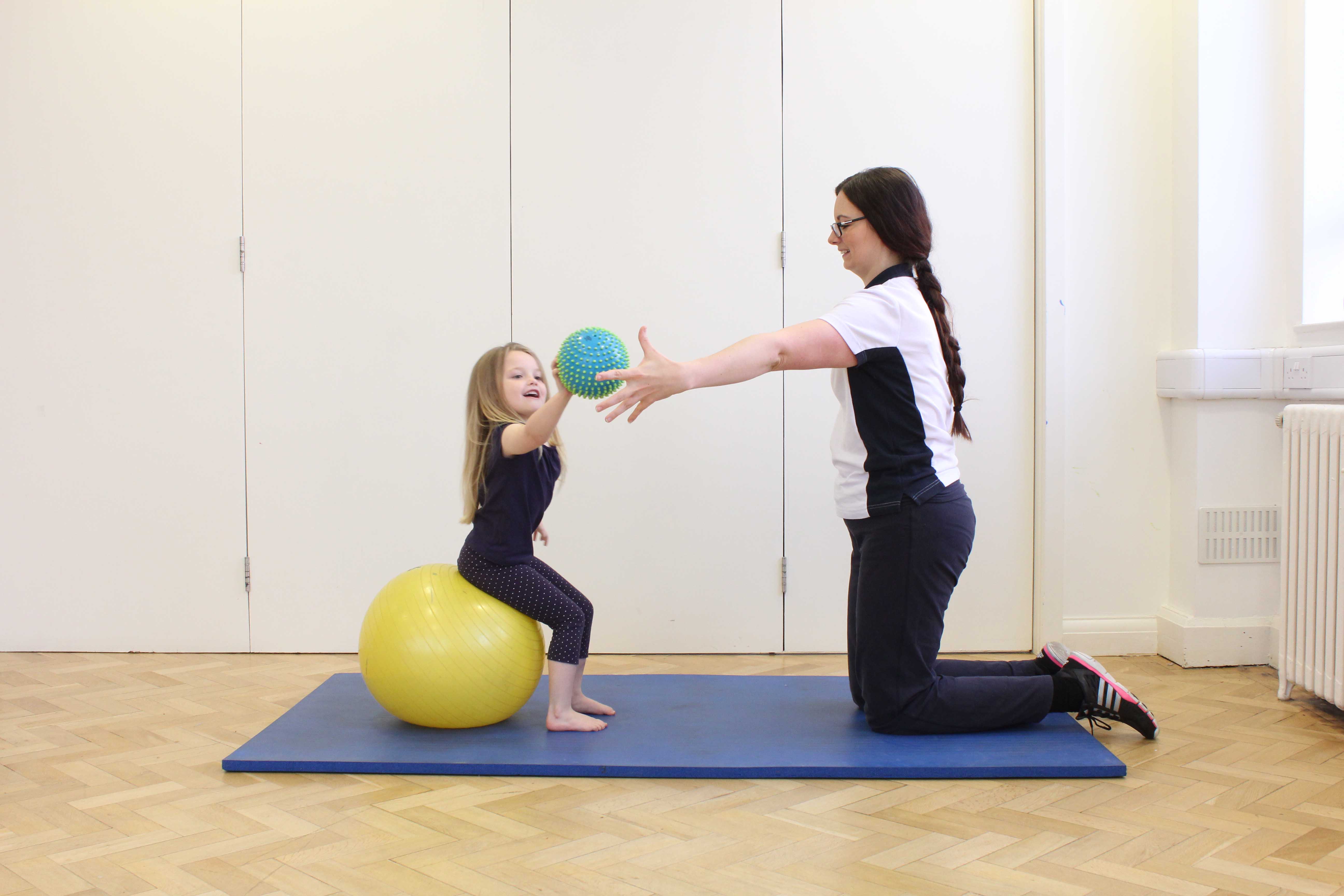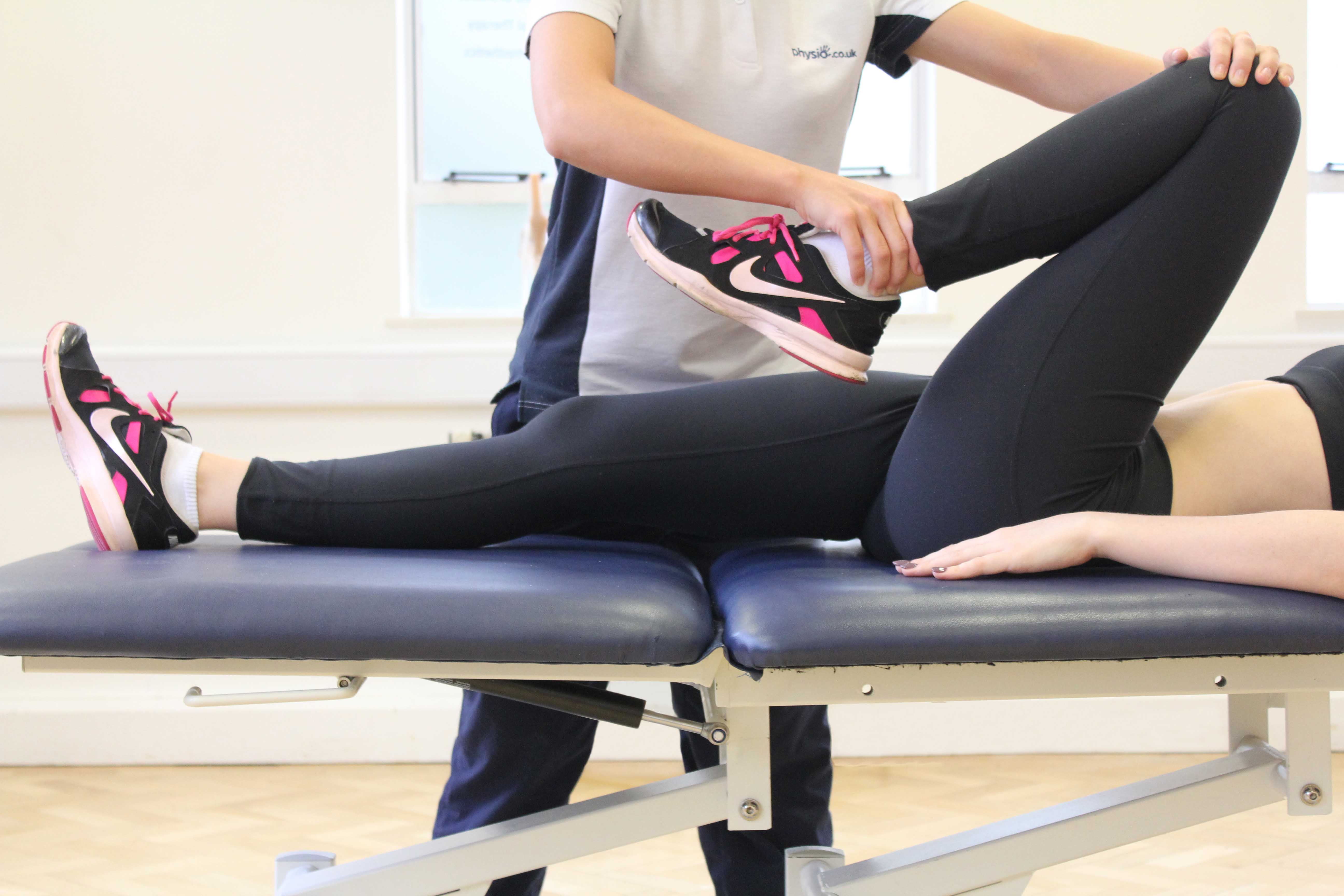What is reduced range of movement?
Reduced range of movement is where there is a limitation of movement at a joint. The movement may become stiff or painful. Pain or stiffness may restrict the normal fluency of the joint’s range.
Causes of Reduced Range of Movement
 Above: Monitouring ranges of planta-flexion available in the ankle using a goniometer
Above: Monitouring ranges of planta-flexion available in the ankle using a goniometerThere are different types of reduced range of movements. The three main types of reduced range of movement include:
- Mechanical –
- Muscle Injury
- Ligament injury
- Tendon injury
- Pain
- Neurological
- Proprioception
- Problem / injury with the nerves
- Brain damage
- Complex regional pain syndrome – leads to decreased use of limb (immobilisation)
- Contractures due to abnormalities in nerve pathways
- Infection
- Swelling
- Pain
- Rheumatoid arthritis
- Gonococcal joint infection (gonorrhoea)
- Non Gonococcal joint infection (bacterial)
- Active range of movement is when the individual initiates and completes the movement through muscular action and control. This type of movement will only be reduced if there is an abnormality with the mechanisms which produce the movement.
- Active range of movement can be reduced if there is pain, muscular weakness and altered nerve pathways or a foreign object blocking the movement
- Passive range of movement is when the joint is taken through its range with no involvement of the individual. This is usually done by a physiotherapist during and assessment or as a treatment. This would eliminate the cause being due to structures which produce the movement such as muscle action.
- Passive range of movement may be decreased due structures and which to swelling, bony abnormalities and foreign objects within the joint.
How can Physiotherapy help with reduced range of movement?
Physiotherapists diagnose what is causing the decreased range of movement. At Physio.co.uk there are qualified experienced physiotherapists who have knowledge of diagnosing and treating the cause for reduced range of movements at a joint with a variety of causes. They can help:
- Increase range of movement as appropriate
- Strengthen the surrounding muscles
- Decrease pain
- Offer self-management strategies
- Improve quality of life
- Improve mobility (if a lower limb joint)
 Above: Physiotherapist encouraging increased range of movement with a reaching game.
Above: Physiotherapist encouraging increased range of movement with a reaching game.What type of treatments can be expected for reduced range of movement?
Physiotherapists at Physio.co.uk have a variety of skills and knowledge of treatments which can treat the cause and relieve the symptoms. Some of the most common treatment modalities are:
- Stretching exercises
- Active range of movement(the individual performs the movement)
- Passive range of movement(someone performs the movement for the individual)
- Active assisted range of movement(the individual performs the active range and then requires assistance of their good limb or someone to take the joint range further)
- Mobilisations
- Heat therapy
- Electrotherapy (PSWD, Interferential, TENS)
 Above: Passive stretches and mobilisations of the hip and knee joint to improve available range of movement
Above: Passive stretches and mobilisations of the hip and knee joint to improve available range of movementSummary
To increase joint rage of movement to its optimal range a qualified physiotherapist’s knowledge and experience is advisable. To improve the health of a joint, increase movement and decrease pain please contact us or call 0330 088 7800 to arrange an appointment.

 0330 088 7800
0330 088 7800

































